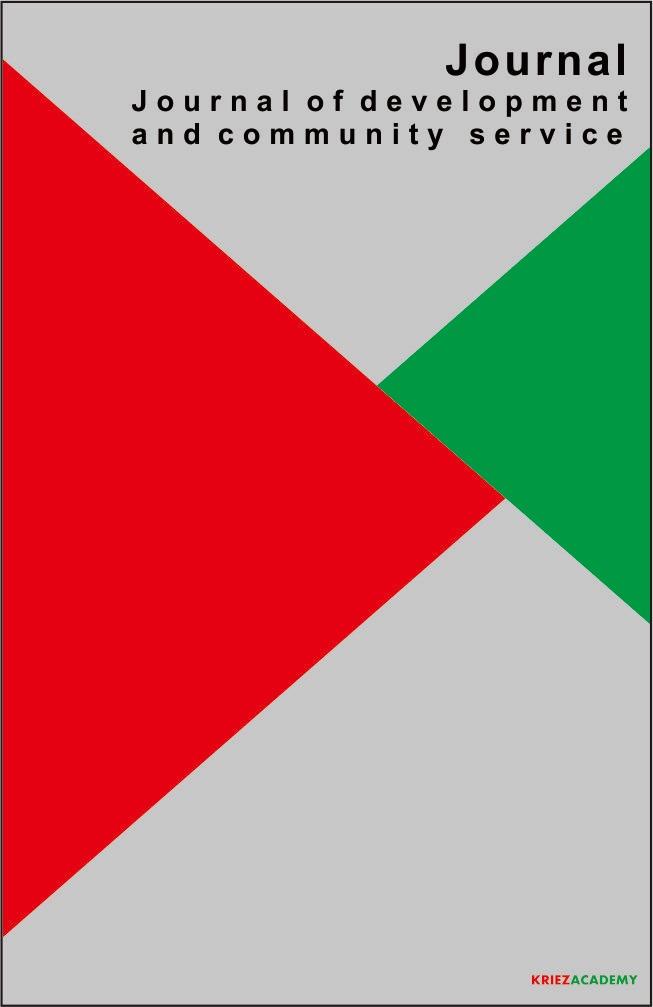EXAMINING THE EFFECT OF EMOTIONAL INTELLIGENCE ON LEADERSHIP EFFECTIVENESS AND EMPLOYEE MOTIVATION
Keywords:
Crisis Management, Organizational Resilience, Leadership, Communication, Technological IntegrationAbstract
Background
Organizations today operate in an increasingly volatile environment characterized by frequent crises, such as natural disasters, cyberattacks, and economic downturns. These disruptions threaten operational stability and long-term viability, emphasizing the need for effective crisis management. Organizational resilience—the ability to adapt, recover, and thrive during and after crises—is essential for sustaining success. Resilience requires a multifaceted approach, integrating proactive planning, adaptive leadership, clear communication, technological innovation, and a supportive organizational culture. This study investigates how crisis management strategies enhance resilience and provides actionable insights for improving preparedness and response.
Aims
The study aims to explore the role of crisis management strategies in strengthening organizational resilience. Specifically, it identifies critical factors that contribute to resilience, such as leadership, communication, technology, and collaboration. Additionally, it provides practical recommendations for organizations seeking to enhance their crisis preparedness and response capabilities. By addressing these objectives, the study bridges the gap between theory and practice in managing organizational crises.
Research Method
A mixed-methods approach was employed to provide a comprehensive understanding of the relationship between crisis management and resilience. Quantitative surveys were conducted with 500 professionals across diverse industries to capture trends and assess the effectiveness of crisis management practices. Complementing this, qualitative interviews with 50 leaders and employees, along with three detailed case studies, provided in-depth perspectives on real-world applications. Data analysis included statistical correlations for quantitative findings and thematic evaluations for qualitative insights, ensuring a holistic view of effective crisis management strategies.
Results and Conclusion
The study identifies six key strategies that enhance organizational resilience. First, proactive planning, including risk assessments and crisis simulations, was found to improve readiness for unexpected events. Second, adaptive leadership, characterized by flexibility, empathy, and vision, played a critical role in guiding teams through crises while maintaining morale. Third, effective communication—both transparent and timely—was essential for fostering trust and collaboration among employees and stakeholders. Fourth, technological integration, such as real-time monitoring systems and digital collaboration tools, enhanced agility and decision-making. Fifth, a resilient organizational culture that promotes trust, innovation, and teamwork helped sustain performance during crises. Lastly, strategic external collaborations with partners and stakeholders provided additional resources and expertise, ensuring a more robust response to complex challenges. These strategies collectively improved recovery times, employee engagement, and stakeholder trust, underscoring the strong link between crisis management and resilience.
Contribution
This study contributes to the understanding of organizational resilience by integrating diverse crisis management strategies into a cohesive framework. The findings offer practical guidance for organizations to enhance their preparedness, response, and recovery efforts. By applying these insights, organizations can better navigate uncertainty, safeguard stability, and sustain long-term growth, highlighting the strategic importance of crisis management in today’s complex environment.
Downloads
References
Ahmed, S., & Khan, A. (2025). Understanding the between innovation ecosystems and competitive advantage. Innovation Ecosystems Journal.
Ahmed, T., & Zafar, S. (2025). Cross-functional collaboration in driving innovation success. Collaboration and Innovation Journal.
Chan, W., & Wong, K. (2025). Sustainable innovation management: Practices for long-term competitiveness. Sustainability and Innovation Journal.
Gupta, A., & Singh, T. (2024). Adapting to competitive pressures through innovation management: A case study approach. Competitive Pressures Journal.
Han, J., & Park, S. (2024). AI and machine learning in innovation management: Emerging practices. AI in Innovation Journal.
Kumar, A., & Singh, V. (2025). Digital innovation and agility in competitive industries: A case-based analysis. International Journal of Innovation and Competitiveness.
Liu, H., & Wang, J. (2025). The role of leadership in driving innovative practices within organizations. Journal of Leadership and Innovation.
Lopez, R., & Garcia, M. (2025). From ideation to commercialization: A roadmap for innovation-driven growth. Journal of Commercialization Strategies.
Malik, R., & Kapoor, V. (2025). Human capital and innovation management: A dual perspective on growth. Human Capital and Innovation Journal.
Mehta, P., & Patel, R. (2024). Strategic partnerships in fostering open innovation models. Strategic Partnerships Journal.
Patel, R., & Singh, P. (2024). Open innovation as a pathway to success: Trends and practices in competitive markets. Open Innovation Journal.
Singh, D., & Kapoor, A. (2024). Leveraging innovation management in SMEs: Strategies for sustainable growth. Small Business Innovation Review.
Taylor, H., & Morgan, L. (2025). The role of agile methodologies in fostering rapid innovation. Agile Innovation Journal.
Taylor, J., & Morgan, L. (2024). Managing organizational success through technology-driven innovation. Journal of Technology and Management Studies.
Yoon, C., & Choi, H. (2025). The impact of technological innovation on market performance: A meta-analysis. Technological Innovation Journal.
Zhang, J., & Liu, H. (2025). Exploring dynamic capabilities in driving innovation management success. Dynamic Capabilities Journal.
Zhang, L., & Zhao, M. (2025). The interplay of innovation management and cultural adaptability in multinational corporations. Journal of Multinational Management.
Zhang, T., & Liu, L. (2024). Creating value through innovation: The role of consumer engagement. Consumer Engagement and Innovation.
Zhao, W., & Lin, X. (2025). Balancing innovation and risk in dynamic industries. Risk and Innovation Management.
Zhao, X., & Zhang, J. (2025). Exploring co-creation and its effect on organizational innovation. Journal of Co-Creation and Innovation.

Downloads
Published
Issue
Section
License
Copyright (c) 2025 Wawan Ichwanudin (Author)

This work is licensed under a Creative Commons Attribution-ShareAlike 4.0 International License.












